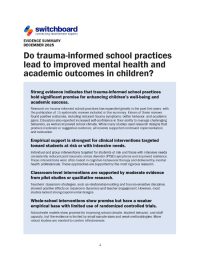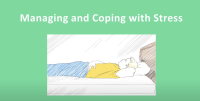Strong evidence indicates that trauma-informed school practices hold significant promise for enhancing children’s well-being and academic success. Research on trauma-informed school practices has expanded greatly in the past five years, with the publication of 15 systematic reviews included in this summary. Eleven of these reviews found positive outcomes, including reduced trauma symptoms, better behavior, and…










